COVID-19

Voting Rights, Ranking Senate Dems’ Staff Diversity, Infrastructure & More: July 16 Joint Center Roundup
Biden Administration
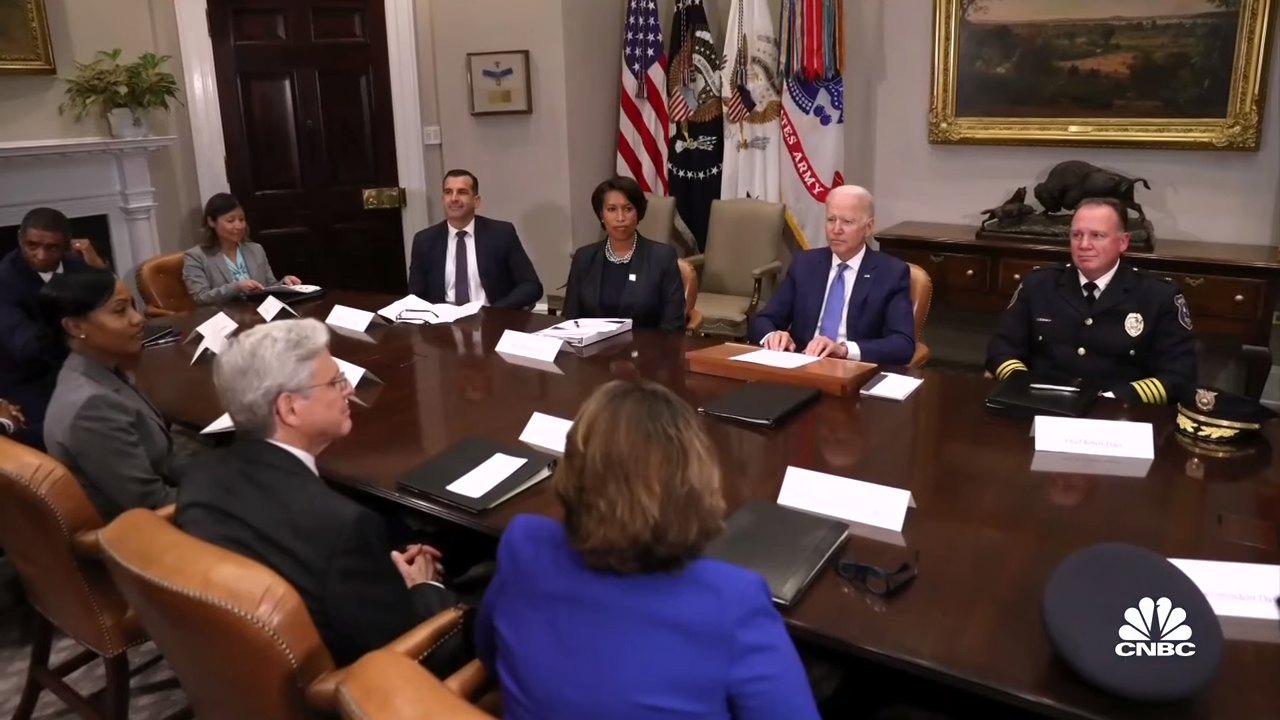
Biden on policing: During a meeting with mayors and police chiefs, President Biden said Americans owed law enforcement and community leaders “big time,” reports the New York Times. The meeting was reportedly an “increasingly urgent effort by the White House to demonstrate that the president is aggressively confronting gun violence as homicides rise in cities across the country.” The meeting may, however, cause pushback from activists who have called for defunding the police in favor of alternative programs.
Civil rights leaders speak on Biden’s voting rights speech: After President Biden called for Congress to pass the For the People Act and the John Lewis Voting Rights Advancement Act and said “we have to prepare” to combat voter suppression laws being passed, several civil rights leaders are criticizing him for not taking a stance against eliminating or reforming the filibuster. As of now, a filibuster requires 60 votes to end, but Democrats control only 50 seats in the Senate. See additional coverage in Washington Post. Yesterday, Congressional Black Caucus Chair Joyce Beatty (D-OH) was arrested by Capitol Hill police for protesting on the Hill for voting rights alongside nine other people. She later tweeted “#GoodTrouble” as a nod to the late Congressman John Lewis. More than 150 companies including Apple, Amazon, Google, Starbucks, and Pepsi signed a letter calling for Congress to pass the John Lewis Voting Rights Advancement Act.
POTUS & VP praise Child Tax Credit: At a White House press conference, President Biden and Vice President Kamala Harris spoke about the historic Child Tax Credit, a monthly payment to some parents with children up to age 17 that began yesterday. Prior Democrats’ analysis of the proposal finds that the temporary $3,600 increase to the child tax credit will cut “child poverty among Black families by more than 50%.”
United Nation experts on racism and human rights invited to the U.S.: In an effort to “address domestic racial justice and equality,” the Biden administration invites United Nations experts on racism and human rights to the United States. Additionally, Secretary of State Antony Blinken welcomed the UN Human Rights Council’s adoption of a resolution to “combat systemic racism against Africans and people of African descent in the context of law enforcement.” Secretary Blinken calls on all UN member states to come together and confront “racism, racial discrimination, and xenophobia” to strengthen our collective security by ensuring all people “are free to live up to their full potential.”
Vice President Harris congratulates Avant-garde on her spelling bee victory: Vice President Harris congratulates Zaila Avant-garde for her historic spelling bee win as the first “Black American to win the Scripps National Spelling Bee in almost 100 years of contests.”
The Hill
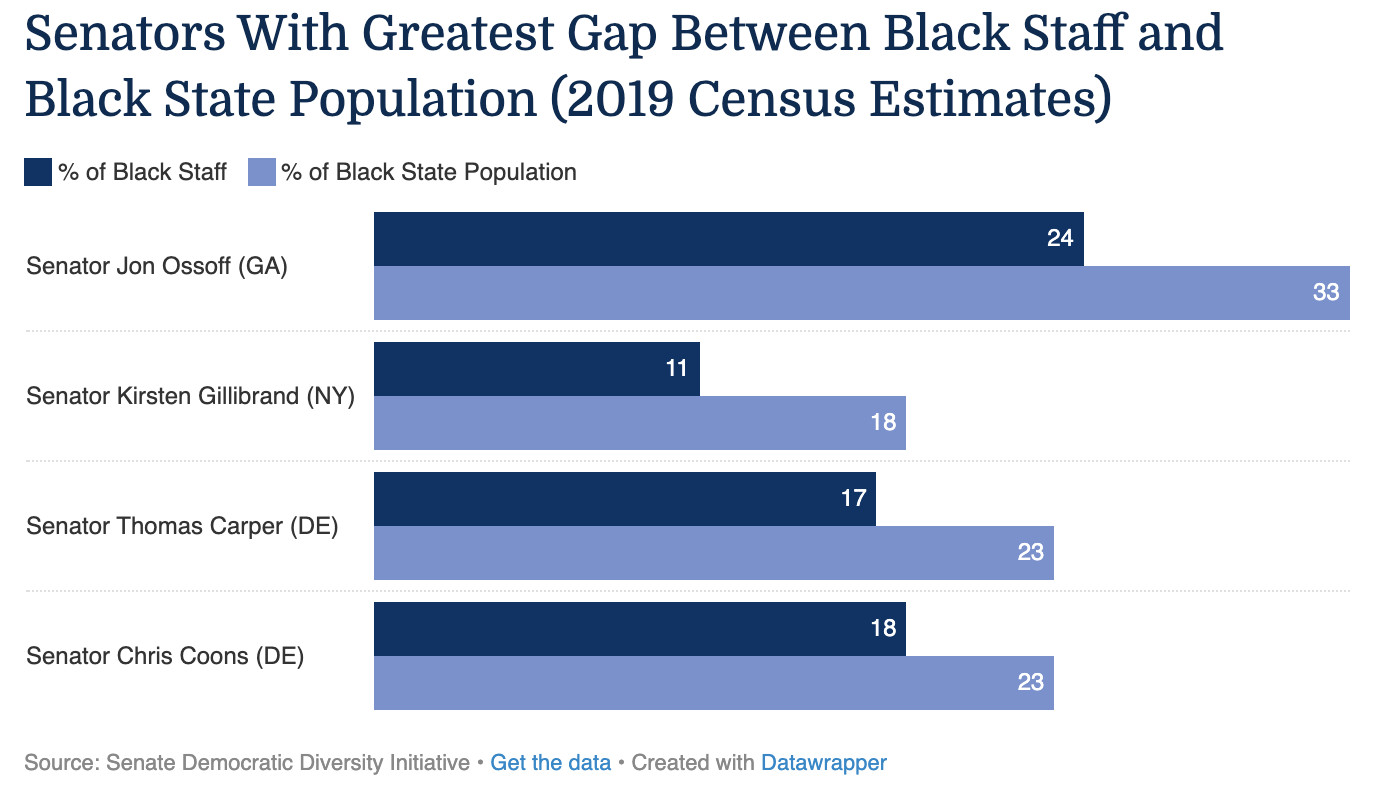
Dr. LaShonda Brenson ranks Democratic Senators’ performance on staff diversity: In response to the release of the Senate Democrats’ annual survey of racial, ethnic, sex, and sexual orientation/gender expression diversity, Joint Center Senior Fellow of Diversity and Inclusion Dr. LaShonda Brenson published an analysis with over 20 graphics showing rankings of the top three personal and committee offices with racially diverse staff; personal offices with the most Black, Latina/o, Asian American/Pacific Islander, and women staff; the least racially diverse personal and committee offices; and much more. Dr. Brenson will also release a report analyzing the racial diversity of Senate committee top staff soon.
Bipartisan infrastructure deal reaches hopeful deadline: Members of the bipartisan group of Senators working on infrastructure legislation are hopeful to have a“$1.2 trillion, eight-year infrastructure deal by the end of the week.” Democrats and Republicans both face skepticism towards a bipartisan approach. On one end, progressives want “an “ironclad” understanding on a separate Democrats-only bill in order to support the smaller proposal” and on the other, Republicans are “wary of helping pass a bipartisan deal if it also enables Democrats to pass a multi-trillion-dollar package under reconciliation, which allows them to bypass the 60-vote filibuster.”
Proposed budget expands Medicare & more: Senate Democrats announced plans to introduce a $3.5 trillion budget package to “expand Medicare benefits, boost federal safety net programs, and combat climate change,” reports the Washington Post.
Proposed July deadline for police reform: Senator Tim Scott (R-SC) sets ahopeful July deadline for police reform legislation as Republicans and Democrats “remain at odds” over a series of “contentious issues,” such as qualified immunity. Negotiators reached an agreement on “the principles of the framework of the legislation” and are now focused on “getting all that into language.”
GOP uses racial issues in campaign strategy: Ahead of midterm elections, Democrats are “bracing” for the GOP’s use of racial issues as a “nascent campaign strategy” against President Biden and Democrats. Congressional Black Caucus Member Congressman Marc Veasey (D-TX) says Republicans will “use Black and brown people as the foil” to “scare” their voters to the polls. Some Republicans urge the party to focus on issues like worker shortages and inflation, while others emphasize leaning “harder into the culture wars.”
Black Female WWII UNIT: The Senate passed legislation to award members of6888th Central Postal Directory Battalion, the only Black battalion of women to serve in Europe during World War II, with the Congressional Gold Medal. The bill would also rename a Buffalo, New York, post office after Indiana Hunt-Martin, a member of the battalion who passed away last year.
CBC Members speak out against swim cap ban: Congresswomen Barbara Lee (D-CA) and Bonnie Watson Coleman (D-NJ) led a letter sent to the President of the International Swimming Federation (FINA) urging the organization to “evaluate how barriers to participation, like the unavailability of swim caps, impact the representation of Black swimmers.” Several Members of the Congressional Black Caucus and cosponsors of H.R. 2116, the CROWN Act signed the letter. The letter comes after the International Swimming Federation (FINA) banned the use of swim caps designed for Afro-textured hair in the Tokyo Olympics. The New York Times reports FINA is “reconsidering” the ban.
Appointments

Senate confirms Donald Remy to Deputy Secretary of the Department of Veterans Affairs. Mr. Remy previously served as the chief operating officer and chief legal officer for the National Collegiate Athletic Association (NCAA) and as a former U.S. Army captain. Mr. Remy is a graduate of Louisiana State University and Howard University School of Law. He was confirmed for the No.2 position with a 91-8 vote.
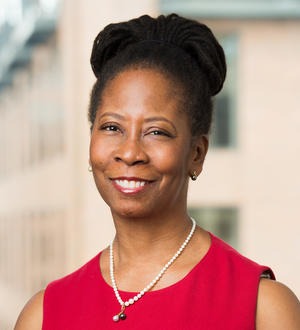
President Biden appoints Kilolo Kijakazi as acting commissioner at the Social Security Administration. After the Trump-appointed Social Security Commissioner Andrew Saul refused to resign despite President Biden’s request to do so, the POTUS fired him and appointed Kilolo Kijakazi as acting commissioner. CNBC reports Ms. Kijakazi was “previously named by Biden to serve as deputy commissioner for retirement and disability policy.” Ms. Kijakazi previously served as a fellow at the Urban Institute and a program officer at the Ford Foundation.
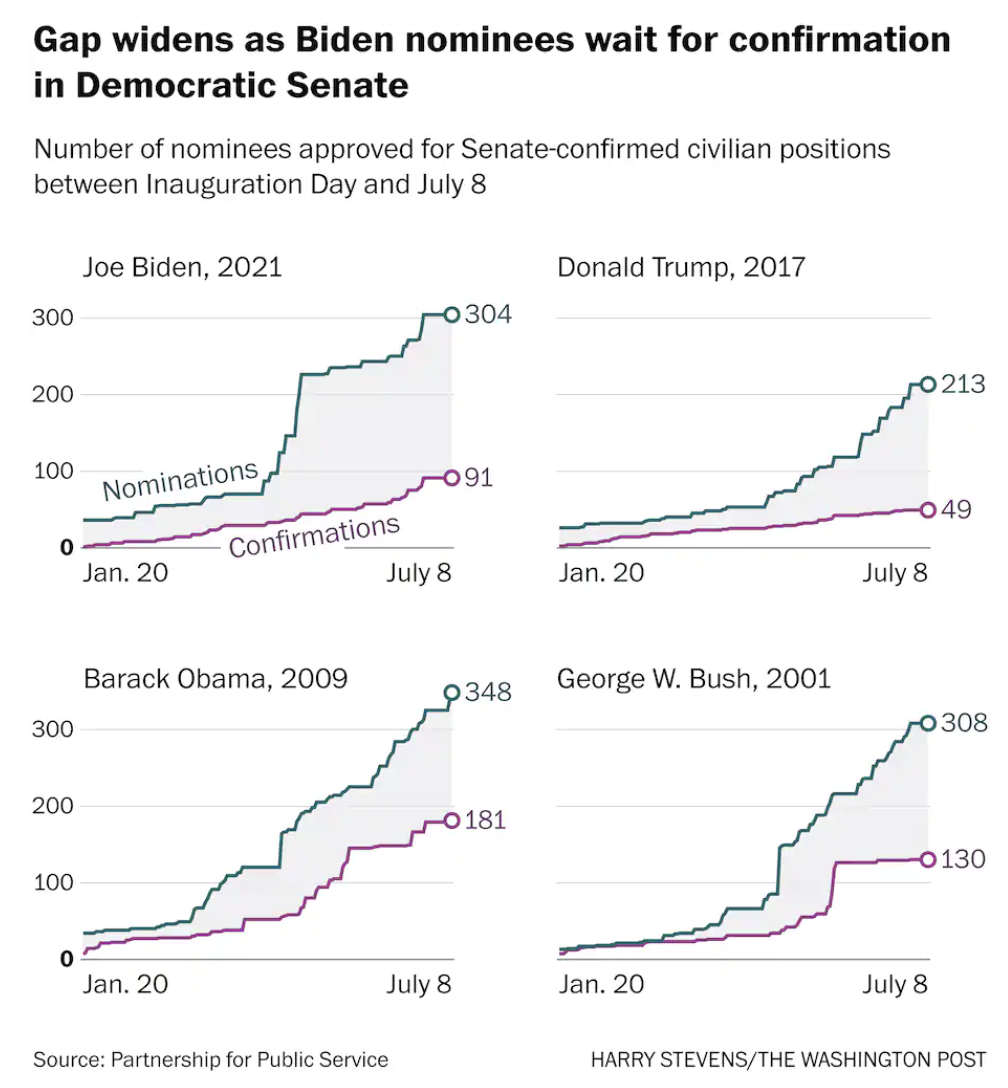
Key economic vacancies remain: A Washington Post analysis shows that President Biden has yet to nominate someone for several agencies, including “a seat on the Federal Reserve Board of Governors, the comptroller of the currency, the assistant attorney general for antitrust, and the chair of the Commodity Futures Trading Commission.” The Joint Center and many other Black organizations have supported Shalanda Young for OMB Director, Dr. Chris Brummer for CFTC Chair, and Dr. Lisa Cook for the Federal Reserve Board of Governors.
Economic Studies
Black men return to the labor force: Black men have returned to the labor force in record numbers, but still face the highest unemployment rate (10 percent) of all race and gender groups tracked by the Department of Labor, Bloomberg reports.
Lopsided June employment progress: The Black unemployment rate for June has not bounced back as quickly as other races, as much has only dropped 40 percent from last year, as compared to nearly 50 percent for other races, the Economic Policy Institute notes.
Add racism as a variable: A typical full-time Black worker earned about 20 percent less than a white worker in 2020, The New York Times reports. Economists, including Dr. Bill Spriggs, Dr. Darrick Hamilton, and Dr. Kerwin Charles, offer solutions to close racial wage gaps.
Striking in vain: A year after an all-Black group of New Orleans sanitation workers went on strike, little has changed, say workers, other than a modest increase in pay. Some are working 90-100 hours per week, Southerly magazine reports.
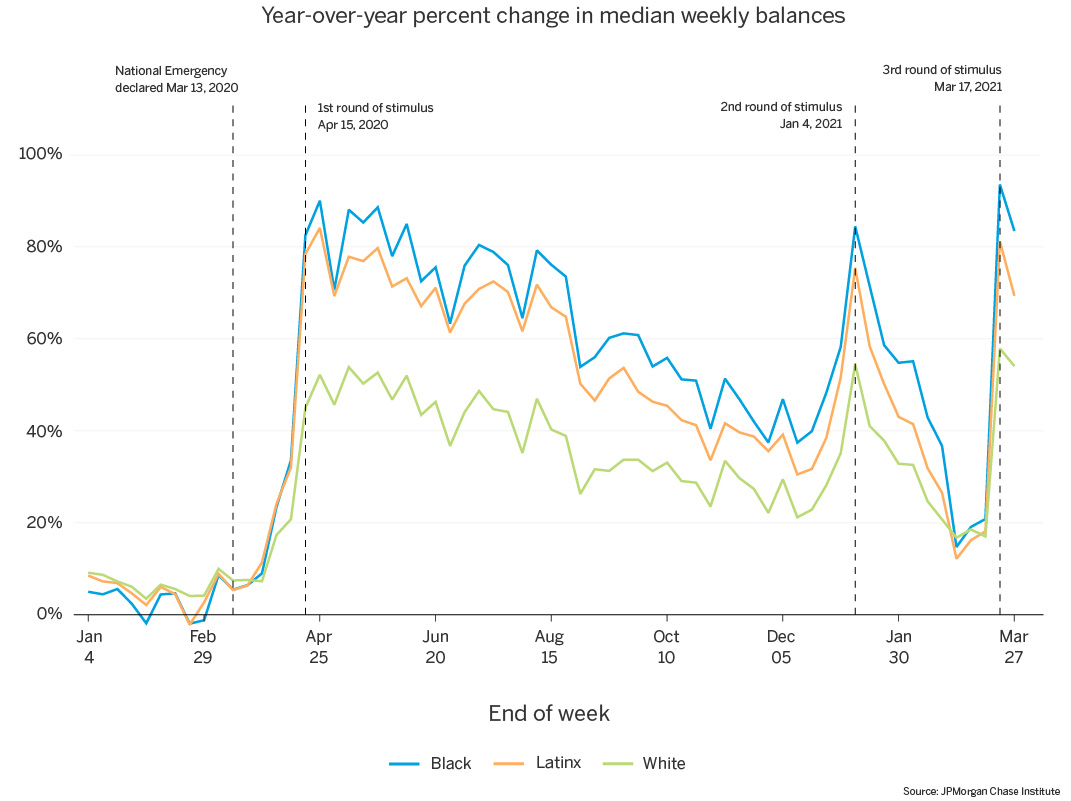
COVID pummeled Black savings rates: The typical Black family saw its bank account grow by 90 percent relative to 2019 levels following the first COVID-19 stimulus payment, JPMorgan Chase reports, based on its data.
Unemployment needs reform: Reforming unemployment insurance would benefit Black workers, according to the Economic Policy Institute, which finds that states with larger Black populations have shorter benefit durations and less generous benefits. These states are also typically in the South, where many jobs are low wage with few benefits.
Curbing predatory greed: The Center for Responsible Lending commended President Biden for signing a bill to curb predatory lending. “Especially for Black America and other communities of color, solid steps toward ending billion-dollar financial exploitation are particularly deserving of attention. Historically, we have already borne the brunt of predatory greed,” Charlene Crowell, Senior Fellow at the Center, writes.
Tech Policy
WH to advocate for racial equity in tech: White House Deputy Director of Science and Society Alondra Nelson says she will address algorithmic bias and other forms of racial inequity in technology, Wired reports. Nelson noted that the Black community is overexposed to the harms of technology and science and underexposed to the benefits.
The source of tech bias starts at the top: Tech companies, including Twitter and TikTok, may claim that cases of algorithmic bias on their platforms are unintentional, but such bias is a direct result of persistent racial and gender inequality in hiring and leadership in the tech industry, a Slate opinion piece argues.
Race-targeted ads continue: Facebook eliminated its racial advertising categories in an effort to prevent discrimination, but its advertisers still use many proxy terms and categories to target users by race, including “BET,” “African American culture,” “gospel music,” and “Black girls rock,” the Markup reports. Joint Center President Spencer Overton has emphasized that the underlying purpose of the ad rather than race consciousness is the problem. For example, we want Black candidates to be able to mobilize Black voters to the polls, and we want Black small businesses to be able to reach consumers most interested in their products. On the other hand, we do not want Russian operatives posing as African Americans targeting ads at Black users discouraging them from voting.
Regulating AI, Step 1: The Algorithmic Impact Assessment is a new push to create a framework for regulating algorithmic systems and protecting the public interest. The 10 key elements of the framework include the need to create ways to assess harm and develop procedures for redress, a new report in Data and Society finds.
AI bias in low-wage hiring: A report by Upturn analyzes barriers low-wage workers face when applying for jobs that use algorithmic hiring systems. Among its findings: natural language processing (NLP) systems can absorb society’s racial and gender biases. One study found that NLP tools learned to associate common African American names with negative attributes.
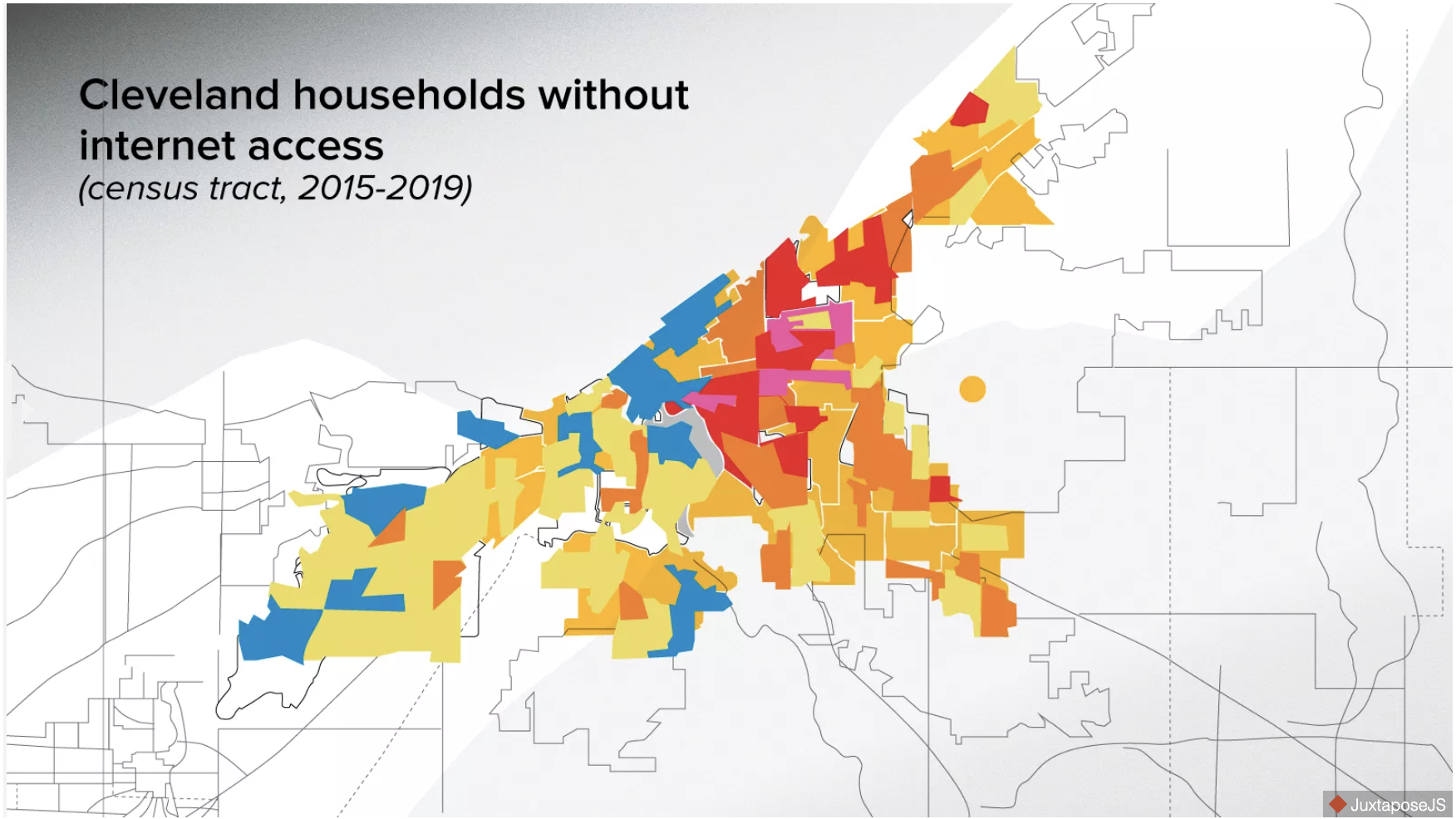
Digital redlining: CNET argues that redlining—a housing discrimination practice dating back to the 1940s—has carried over to today’s digital divide. Formerly redlined Black and other communities are those today without access to affordable and reliable home broadband services. About 31 percent of Black families lack access to high-speed home internet compared to 21 percent of white families. Joint Center’s Technology Policy Director Dr. Dominique Harrison’s examination of broadband in the Black Rural South reveals that digital redlining may be occurring in the region.
A first for digital equity: In an effort to close the digital divide in North Carolina, Governor Roy Cooper announced the creation of the Office of Digital Equity and Literacy, touted as a first for both the state and the nation.
Future of Work & Learning
Worker leverage: The inequities that the pandemic exposed have prompted a call for a new social contract for workers focused on equality, inclusiveness, and opportunities for all, a Forbes contributor argues.

Borrowing more, earning less: Black student borrowers are more burdened by student loan debt, a new study by Student Loan Hero finds. In 2019, Black millennial bachelor’s degree holders earned 22 percent less than non-Black grads ($44,498 vs. $56,731) but according to the latest data available, borrowed 35 percent more, on average, in the 2015-2016 academic year.
Black women shoulder more debt: The student loan debt crisis threatens the economic security of Black women, CLASP argues. Black women carry about 20 percent more debt than white women ($33,851 vs. $41,466) in undergraduate loans one year after graduation.
Close the Pell Grant loopholes: Making all of the Pell Grant nontaxable could make college more affordable by covering nontuition expenses like child care and room and board, Community College Daily argues.
Deceptive practices: Students sue companies over deceptive income-share agreements, MarketWatch reports. The students claim they were misled about the costs of the agreements, which finance students’ education in exchange for a portion of their future earnings.
No silver bullet: Outcome- or performance-based funding for higher education institutions does not address the historical underfunding of HBCUs, a new book finds.
Parents back in college: Student-parents need more supports in college, the Institute for Women’s Policy Research finds. Without more targeted support, gaps in degree attainment by race and ethnicity will persist for adult learners who are parents.
COVID-19
COVID shaved 3 years off life: Life expectancy for Black Americans plunged by 3.3 years during the COVID-19 pandemic. white Americans lost 1.4 years.
Masks on: The spread of the highly infectious Delta variant is prompting health officials in Los Angeles to reconsider safety precautions such as wearing masks indoors in public spaces, even for the fully vaccinated. Of particular concern are the many Black residents who have yet to be vaccinated, The New York Times reports.
COVID-19 cases tick up for Black Angelenos: COVID-19 cases and hospitalization rates are rising among Black residents in Los Angeles County. Comparing two-week periods in May and June, cases rose from 39 to 46 per 100,000 people. Hospitalizations rates rose from 8.4 to 9.3 per 100,000 Black residents, NPR reports.
Schools reopen: The CDC endorsed the fall reopening of schools for in-person learning, with no mask requirements for fully vaccinated students and teachers.
Vaccine hesitancy: Facebook has launched a campaign to combat vaccine hesitancy and misinformation in Black communities in an effort to overcome inequities and obstacles to vaccine access. Efforts include a mobile vaccine truck and popup mobile vaccine clinics across the country. The CDC reports that in June, only 9 percent of Black people had received at least one vaccine dose compared to 60 percent of white people where race/ethnicity was known.
White Evangelicals resist vaccines: Southern white evangelical pastors see little upside in encouraging vaccination as resistance among parishioners hardens, Politico reports. In contrast, Black pastors in the South, with a well-established history of activism, continue to speak about the vaccine.
Political Studies
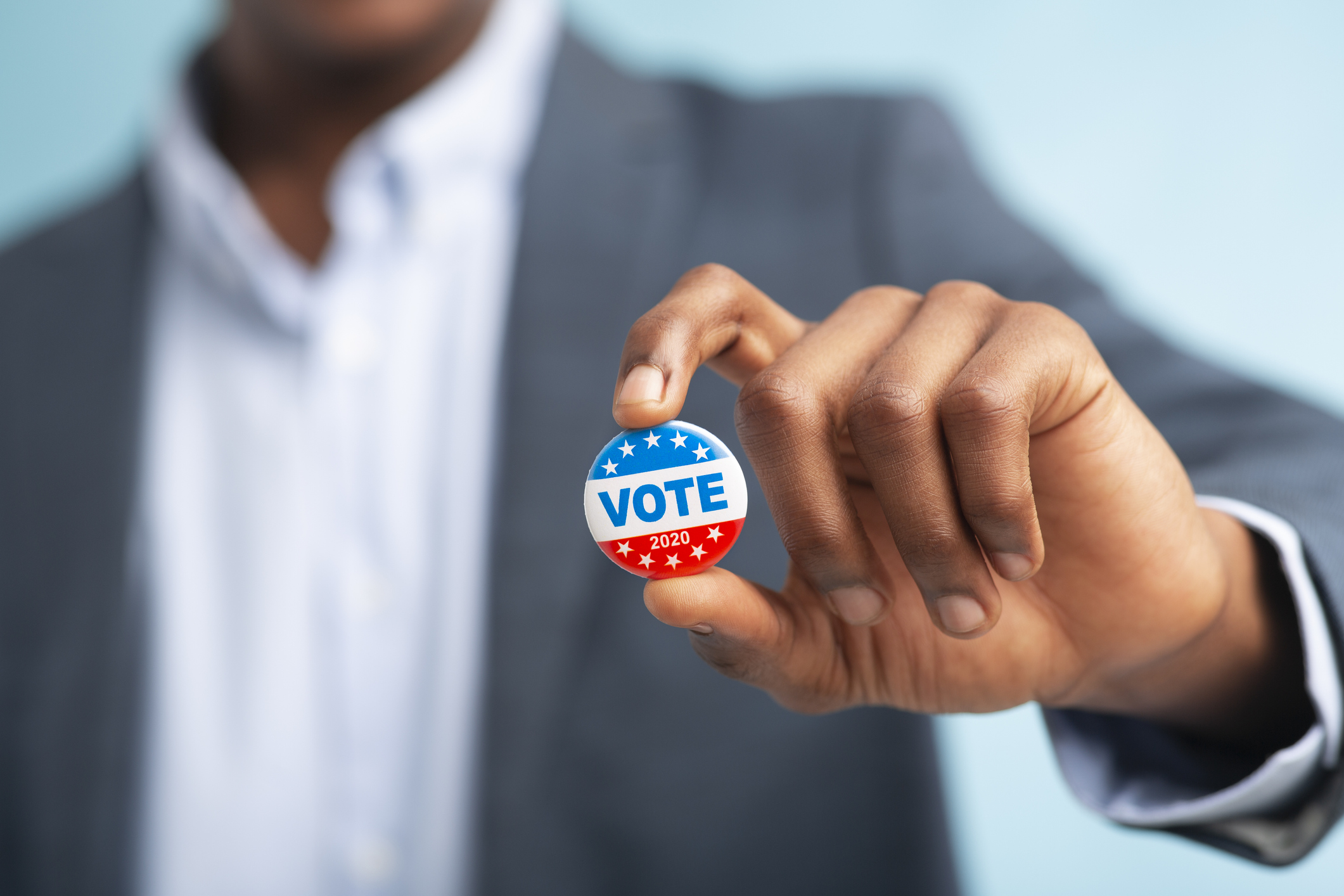
Remove registration deadlines: Same-day voter registration is key to protecting voting rights and countering systemic racism in voter registration policies, an op-ed in The Hill argues. During the 2020 election, 69 percent of eligible Black people were registered to vote versus 77 percent of eligible white people.
Black pastors urge voting: Black Protestant pastors were twice as likely to urge voter turnout and registration than three other major Christian groups, Pew Research Center finds. In Black Protestant churches, 43 percent of the sermons mentioned the 2020 election versus 20 percent of all other sermons analyzed.
Movement Building
Alabama Arise, alongside several other Alabama organizations, sent a letter to Alabama’s Governor, Kay Ivey, outlining six principles that “guide state and local leaders in the most productive, equitable and lasting use” of the $4 billion in federal tax funding.
Color of Change has issues a petition to Facebook demanding an enaction of the following recommendations from the civil rights audit: Prioritize civil rights in business operations and products, implement and enforce a broad and robust policy to eliminate white nationalism and white separatism from the platform, and engage civil rights and anti-discrimination experts when reviewing algorithms.
National Urban League releases its State of Black America annual report. The National Urban League’s 18th Legislative Policy Conference ends later today, and the organization’s National Conference will happen virtually from Sept. 28 to Oct. 1.
Events
Upcoming events include “Democracy at Work: How States Are on the Front Line of Protecting the Right to Vote” (Center for American Progress, July 20); Broadband is the Electricity of the 21st Century. Let’s Light Up Every Community with Joint Center Technology Policy Director Dr. Dominique Harrison (Next Century Cities, July 21); Virtual @Microsoft Conversations: Reshaping America’s Digital Infrastructure for the 21st Century and Beyond with Dr. Harrison (Microsoft, July 22); “Leveraging Workers’ Skills for an Inclusive Economy: Tools, Resources, and Evidence” (Urban Institute, July 22); “NY HERO Worker Training” (NY Essential Workers Coalition, July 22); “Business Leader Briefing with the Department of Commerce” (Public Private Strategies, July 27).
Last week, events were held by Color of Change and the Knight Foundation.
Podcasts
Are short-term job training programs worth it? (Marketplace)
A City’s Step Toward Reparations (New York Times)

